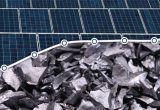EU hands industry €24 billion in pollution windfall
European Union policy – meant to cut pollution not pay for it – provides industry with bumper payout. Report undermines ‘carbon leakage’ claims & adds to momentum for urgent overhaul of crucial policy currently not ‘fit for purpose’.
New analysis shows how industry across Europe has earned a €24 billion windfall from 2008 to 2014, under the EU Emissions Trading Scheme (EU ETS). This is the main policy used across the EU to “cost-effectively”[i] reduce CO2 emissions across industry. The findings in a report ‘Calculation of additional profits of sectors and firms from the EU ETS’, from independent environmental analysts CE Delft, adds momentum to calls from MEPs and campaigners for an overhaul of the policy ahead of the negotiations to revisit the ETS rules this year at EU level.
The sectors profiting most from pollution payouts have been iron and steel, cement, refineries and petrochemicals. The sum netted by industry over the period is more than 10 times the amount the EU has spent on innovation under the EU ETS[ii]. With highly profitable companies such as ArcelorMittal and Lafarge benefiting from the windfall, the report adds to existing criticism of the scheme.
The report identified three ways industry has secured windfall profits through the scheme:
- Companies were awarded too many free emissions allowances that they could sell for a profit in the market;
- Companies bought cheaper international offsets to comply with their targets, and were able to sell remaining free allowances for a profit on the market.
- Companies made their consumers pay for non-existent carbon costs (by passing through the “costs” of freely obtained emission allowances).
However, given that the analysis – commissioned by Carbon Market Watch – was limited to 19 of the EU’s 28 Member States[iii], the actual figure of subsidy awarded is likely to be significantly higher across the region as a whole. The research also underscores the importance of ongoing negotiations to change the current rules, highlighting how outcomes must prevent further exploitation of the EU ETS at the expense of European taxpayers.
Femke de Jong, EU Policy Director at Carbon Market Watch explains: “Instead of making the polluter pay, energy-intensive companies are allowed to pollute for free under the EU ETS. Even worse, they are able to profit from their pollution to the tune of billions. It’s European taxpayers that are picking up this bill as governments forego scarce public money.”
Findings also highlight that ‘carbon leakage’ claims by polluters, often used as means to justify special treatment for various industrial sectors – and allocation of the free permits – are unsubstantiated. Carbon leakage refers to a hypothetical situation where companies transfer production to countries with weaker climate change policies to lower their production costs. However, the report demonstrates that the EU ETS has been a profit, rather a cost, for industry.
The report moreover shows that most of the industrial sectors pass on at least part of the ‘cost’ of free allowances in product prices in which case they are at lower to no risk of carbon leakage according to the ETS directive.
“If costs are passed through, free allocation is not a good instrument to combat eventual carbon leakage” says Sander de Bruyn, Senior Economist at CE Delft.
So far, no evidence has been found for production displacement due to the EU ETS[iv]. Energy intensive companies themselves have also reported to their shareholders that competitiveness risks of the EU ETS are not an issue for them[v].
Femke de Jong, adds: “Today’s findings bust open the industry myth of carbon leakage. There has never been evidence to back-up the relocation threats made by industry. In light of the Paris Agreement that helps to level the playing field to cover over 95% of global emissions, the concept of overgenerous allocation of free pollution permits in the EU ETS can no longer be entertained by decision makers”.
Having given out 11 billion free pollution permits over the 7 years in question, Member States missed out on at least €137 billion in auctioning revenues[vi]. Giving away free emission allowances also reduces the incentive of companies to produce more efficiently or to invest in breakthrough technologies that reduce CO2.
“The EU ETS reform must help achieve the decarbonisation objectives of the European economy whilst allowing a “just transition” for all workers without undermining quality of life or generating windfall profit. The EU must adopt a real low-carbon industrial policy and take appropriate measures to ensure the EU ETS effectively contributes to a socially fair transition to a low-carbon economy” comments Montserrat Mir, ETUC Confederal Secretary in charge of climate and energy issues.
In the coming months, European policymakers are revisiting the rules under which industrial sectors are able to receive free pollution permits.
MEP Jytte Guteland, the S&D spokesperson on the EU ETS revision commented: “Europe can no longer afford the windfall profits that have occurred during the current system. The overall ambition of the ETS must be to gradually move towards ever increasing auctioning, as this is the underpinning logic of the system and a fair solution for market actors.”
MEP Bas Eickhout, the Greens/EFA spokesperson on the EU ETS added: “Environmental and health related costs induced by industrial activities should not be borne by society, but by the ones that cause them. This is not at all the case under the current EU ETS. On the contrary, companies make huge profits out of the pollution permits which they received for free. There is only one solution: the handing out of free emission allowances has to be phased out rapidly.”
The launch of the report is accompanied by an event RE-PLUMBING THE EU ETS: low-carbon innovation and carbon leakage in a post-Paris world – Tuesday 15th March, 15:00 – 17:00 European Parliament – Room 5G1 (live webstream available here).
Industry windfall profits from Europe’s carbon market
HOW ENERGY-INTENSIVE COMPANIES CASHED IN ON THEIR POLLUTION AT TAXPAYERS’ EXPENSE
…………………………………………………………………………………………………………………………………………………………….








